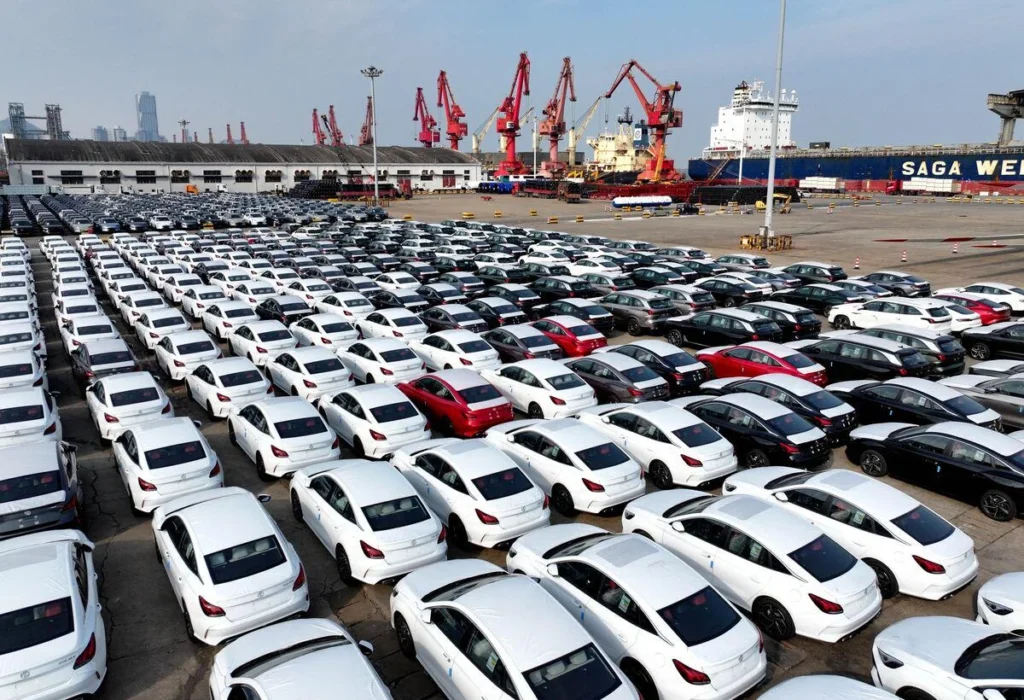Mexico has announced plans to raise tariffs on cars from China and several other Asian countries to 50%. The government says the move is designed to protect local jobs and industries. Analysts believe it is also meant to ease pressure from the United States, which has been pushing Latin American countries to reduce their economic ties with China.
The decision marks a major shift in Mexico’s trade policy. The current tariff on Chinese cars is 20%. The new plan would more than double it. Mexico’s Economy Ministry said the policy is part of a broader overhaul of import duties on multiple goods, including textiles, steel, toys, and motorcycles. The changes are expected to affect around $52 billion worth of imports.
Economy Minister Marcelo Ebrard explained the decision in a press briefing. He said that raising tariffs to the highest level allowed under World Trade Organization rules would give local producers a fair chance to compete. Ebrard argued that without stronger protections, it is almost impossible for Mexican companies to match the low prices of Chinese products. He also said many Chinese cars are entering the Mexican market at prices lower than what officials consider fair market value.
Under the plan, only countries without free trade agreements with Mexico will be affected. These include China, South Korea, India, Indonesia, Russia, Thailand, and Turkey. According to a government document, the new tariffs will apply to 8.6% of Mexico’s total imports. Officials estimate that the move will protect about 325,000 jobs in the industrial and manufacturing sectors, which they say are currently threatened by a surge of low-cost foreign imports.
The new tariffs will not just apply to cars. Steel, toys, and motorcycles will face a 35% duty. Textiles will face tariffs ranging between 10% and 50%. Officials say these steps are aimed at supporting local factories, boosting domestic production, and preventing further job losses.
China has reacted strongly to the news. A spokesperson from its foreign ministry said China opposes trade restrictions placed under what it called “various pretexts.” The spokesperson said China hopes Mexico will choose cooperation to support global economic recovery and trade growth. The official warned that China would defend its rights and interests if it faces unfair barriers.
The tariff plan still needs approval from Mexico’s Congress. The ruling party holds a large majority, making passage likely. If approved, the new tariffs could be implemented soon.
The timing of the decision highlights the growing influence of the U.S. in Mexico’s trade choices. The United States has warned countries in Latin America against allowing China to expand its reach in the region. U.S. officials fear that Chinese companies could use Mexico as a backdoor to enter the North American market and bypass U.S. tariffs by assembling products in Mexico and shipping them duty-free.
Trade experts see Mexico’s plan as an effort to avoid conflict with Washington. Over the past decade, Mexico’s trade deficit with China has doubled. It reached about $120 billion last year. Analysts in the U.S. say this imbalance has raised alarm in Washington. Mariana Campero, a regional expert, said the U.S. will not allow China to use Mexico as a gateway into its market.
Ebrard had opposed tariffs earlier this year, saying they could hurt economic growth and raise inflation. But the sharp rise in Chinese imports appears to have shifted the government’s position. Officials now say the tariffs are needed to protect Mexican industries, even if they raise prices for consumers.
If passed, the new policy will give Mexico some of the highest tariffs on Chinese cars in the world. The move could reshape its trade ties with China and mark a new era of economic protectionism aimed at safeguarding local jobs and industries.



